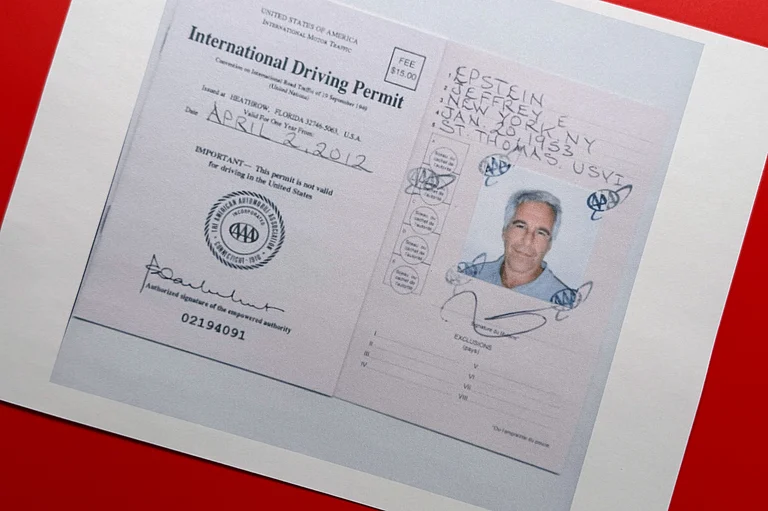IN a DD interview on January 1, two days after creating history by dismissing a serving naval chief, defence minister George Fernandes gave three reasons for his act. The first was that Admiral Bhagwat had been responsible for 'so much defiance of the (sic) Authority over a period of time', that he couldn't continue. Second, that he'd been displaying 'certain disturbing tendencies' of which Fernandes had apprised the PM, and that although the PM and his principal secretary had both spoken to him, his behaviour hadn't changed. The third reason was on an altogether different plane. There are other reasons and one of them is far too serious for the security of the country I am sorry I can't speak about it. I don't think I will be able to speak about it, not for a long time. In short, Fernandes accused Bhagwat of defiance of civil authority; of being mentally disturbed; and of treason.
Well, these charges are complete fabrications Fernandes has deliberately misled the country. Telling lies is not his monopoly. All of us do it from time to time, and sometimes reasons of state make it necessary for a politician to do so. But there are no extenuating circumstances here. Fernandes is, therefore, a dangerously irresponsible man who, in the post of defence minister, is a threat to the nation's security. Let us begin at the beginning: Fernandes claims Admiral Sushil Kumar had made six representations to the chief of naval staff (cns) against his being denied an operational command, before his formal statutory complaint to the defence minister on November 24, '98. Fact is, Kumar wrote three letters to the cns on August 14, September 14, and September 22. As a former chief of personnel, he knew a letter to the cns was not a statutory complaint. The first such he sent on September 29, the second on October 7. On October 30, after a meeting of the chief with fleet commanders, Bhagwat asked him to stay behind. After discussions, Kumar agreed to withdraw the complaint and abide by the chief's decisions. Bhagwat thereupon asked the vice chief, and the Western command fleet commander to return. Adm. Kumar then repeated what he'd said, and the cns entered a notation upon the file.
Fernandes' claim that when Kumar nonetheless sent him a statutory complaint on November 24, Bhagwat threatened to court-martial him; that in panic Kumar rang him up on November 27 begging for protection; that he assured him that he 'was still alive...so don't worry', is a magnificent piece of drama concocted either by Kumar or Fernandes. To begin with, Bhagwat was in Bangladesh from November 22-28 and there will be records of any phone call. Bhagwat denies having made a call. On his return to Delhi, he wrote to Kumar on November 30, Since your first statutory complaint is dated October 7, it is incorrect to claim an application dated August 14... can be treated as... your first statutory complaint. Accordingly your addressing the Hon. Raksha Mantri on 7 October...and your latest direct representation...are violative of provisions of the Regulations, Navy, and are therefore actionable. Nowhere was a hint or reference to a possible court-martial.
Asked about the communal slur made by Vice Admiral Harinder Singh against Bhagwat and his wife, Fernandes ducked skilfully. Then, he counterattacked Bhagwat for having gone to court against then cns Admiral Nadkarni's decision to overlook him for western command, and making wild allegations against all and sundry, including V.P. Singh, then PM. But Fernandes twisted these facts too. Then too minister of state Raja Ramanna had overturned Nadkarni's word in favour of Admiral 'Tony' Jain and recommended Bhagwat, but V. P. Singh, who was also defence minister, had reinstated Jain as per the cns' recommendation. Bhagwat approached the courts only after exhausting all administrative procedures for redress, on the grounds that his confidential report for August '88 to August '89 had been replaced with a forgery. The government eventually reversed his decision and appointed Bhagwat.
Fernandes may consider the charge that Bhagwat breached national security frivolous enough to be appended as a coda to a succession of other, trivial allegations. I will not compound that mistake. If Bhagwat has breached security knowingly, he deserves a court-martial. Now that he has been dismissed, this must be taken up by high civil court. The country owes it to him to clear his name if the charge is false, and owes it to itself to punish him if it is true.
A close analysis of Fernandes' responses on DD show the charges Bhagwat and a succession of service chiefs have made against the bureaucracy are true. Take his sentences, He (Adm. Kumar) was in the normal course required to hold an operational command so he could be in the reckoning to become chief. The matter was taken up by the ministry for giving him a command. The command was not given. Required by whom? Who ordained that he should remain in the reckoning for the chief's post? And how did the ministry take this up with nhq when the Navy Act explicitly says the flow of recommendations should be the other way?
Now consider what the ministry is capable of doing for a favourite like Harinder Singh. In CRs for '96-97 and '97-98, the cns gave three reasons for not considering him for a Principal Staff Officer's post: that he was an average commander; that he was less than adequately motivated to do his job; and finally that he'd admitted to accepting the hospitality on a grand scale over two months for himself and his family in London, Moscow and St Petersburg, of two well-known arms dealers. In all, there were therefore six adverse entries in Harinder Singh's CRs, even before he cast communal slurs against his chief and wife. On August 12 the ministry ordered that all 12 adverse remarks be expunged.
What Fernandes and his secretary Ajit Kumar have done in the name of civil authority is to take civil authority for a ride. What the country deserves to know is why?























